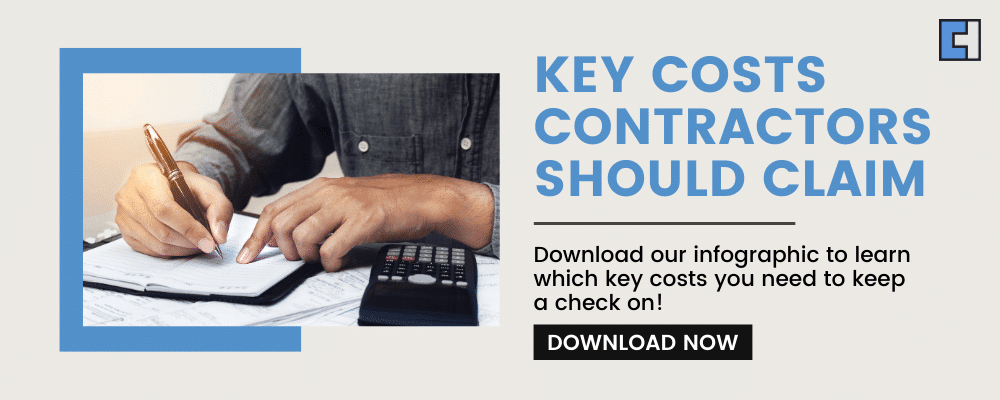For those who are used to working full-time, claiming expenses can be quite a challenge due to the unforeseen nuances that come along with becoming a contractor. Claiming expenses as an employee is usually simple, you either pay the costs upfront and claim them back by providing a receipt or use a company credit card. The process is similar to a contractor; however, you need to be much more aware of what you can and can’t claim for and keep clear records.
Here we will outline 10 key costs contractors should be claiming so long as the expenses have been incurred as a result of their contractual duties and have been properly documented with receipts and evidence that the expenditure has taken place. If you are operating through a limited company, your allowable expenses will depend on your IR35 status so it’s a good idea to investigate the best IR35 specialists London has in your business area.

1. Tax-deductible business expenses:
These are expenses that can be subtracted from a company’s income before their being subject to taxation. This includes the accountant’s monthly fees, legal costs, business insurance, and other professional costs. If you’re unsure, it’s a good idea to speak to your contractor accountants.
2. Claiming computer equipment expenses:
Computer equipment purchased for your business is tax-deductible. However, make sure to check with a contractor specialist if you think you might be on a flat rate VAT scheme as this will mean you can only reclaim VAT on purchases that total over £2,000 on a single receipt.
3. Pension expenses:
If you’re making pension contributions to a scheme approved by HMRC, then you‘re eligible for a tax break on these contributions against any corporation tax you pay. Ask your contractor accountant for advice on an eligible scheme.
4. Telephone and broadband expenses:
If you’ve recently set up as a contractor and are hoping to get money back for some of your phone and broadband use, then it’s a good idea to sign a new contract with your provider in your company name. Using an existing package isn’t looked at favourably by HMRC as you would have been paying for it anyway.
5. Floor area & allowable costs:
If you’re working out of your own home a percentage of other household costs can be claimed as expenses as an allowable cost. The exact percentage allowed depends on the total floor area of your house given over to business use and how often space is used for business on average. So, if 20% of the house is used as an office a quarter of the time, 25% of total costs on allowable expenses can be claimed:
- Heating & energy costs
- Water
- Mortgage interest
- Cleaning bills
- Council tax
- Repairs & maintenance
6. Company cars & transport expenses:
In most cases, it’s likely to be more beneficial to buy your own car and run it privately rather than buying a company car. However, in some specific instances, this situation will be reversed so it’s a good idea to look at the contractor accountants London has with an understanding in this area. Expenses can be claimed for mileage, bicycle, and motorcycle travel, and travel expenses, too, but it’s vital to keep good records whether you want the help of a contractor specialist or not.
7. Accommodation expenses:
There are a variety of scenarios where accommodation costs can be claimed as reasonable expenses. These include renting a flat or house near your workplace (so long as it’s not your principal residence); staying overnight with friends for business purposes (they can also benefit), and; some of the relocation costs. Rent also does not attract national insurance contributions so you may be able to reduce your tax bill here, just make sure to speak to the good IR35 specialists London has in this field to avoid running into any IR35 issues.
8. Entertainment & food expenses:
Amazingly, there are even certain tax breaks for entertainment purposes and, perhaps less unexpectedly, food is eaten whilst at work. The entertainment relief is small at a maximum of £150 per head per annum for a Christmas do or any other staff function.
9. Health check expenses:
If you want a private annual health check, you may be surprised that putting this through your company can lead to tax benefits. This is also true for your employees.
10. Subscriptions & courses expenses:
If you are signed up to any professional bodies, want to make use of relevant training or purchase a subscription to relevant business periodicals, then these expenses are suitably claimed back.
Whether you are just setting up as a contractor or are well and truly established, the number of different ways to claim expenses can be confusing and hard to get the best out of without specialist advice. Since this advice itself can be claimed,d it’s well worth the outlay to ensure you are making the best tax decisions both personally and for your company in general.









































































